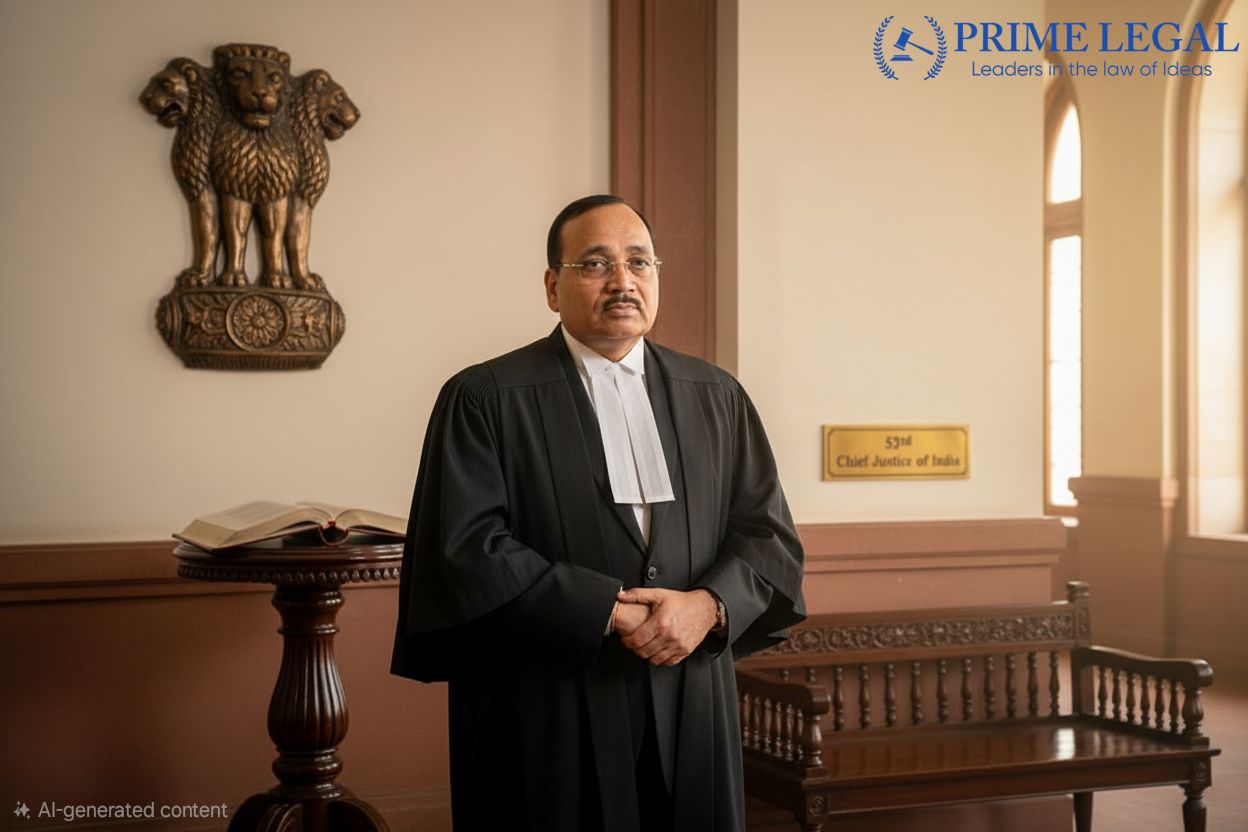Introduction
The President of India has approved the appointment of Justice Surya Kant as the 53rd Chief Justice of India (CJI), who will succeed the current CJI, Justice B.R. Gavai. CJI B.R. Gavai will be retiring on 23 November 2025. Following that, Justice Surya Kant will take over from 24 November 2025.
Background
Justice Kant was born on 10 February 1962 in Hisar district, Haryana. He did his LL.B. from Maharishi Dayanand University, Rohtak, and commenced his legal practice in the district court. He moved to the Punjab and Haryana High Court. His expertise was in constitutional, service, and civil matters. In 2000, he was appointed the Advocate General of Haryana and designated as a Senior Advocate. After that, he became the Chief Justice of the Himachal Pradesh High Court. Finally, in 2019, he was elevated to the Supreme Court and now will assume the office of CJI on 24 November 2025. His tenure is expected to end in 2027.
Key Points
Process of appointment- Article 124 of the Constitution governs the Supreme Court of India. Article 124 (2) provides that “every judge of the Supreme Court shall be appointed by the President by warrant under his hand and seal after consultation with such of the Judges of the Supreme Court and of the High Courts as the President may deem necessary.” However, the Constitution does not give a procedure for selecting the CJI. The judicial convention is that the outgoing CJI recommends his successor (typically the senior-most judge of the Supreme Court) to the Government. Then the Law Minister places the recommendation before the Prime Minister, and the President formally appoints the judge. The key factor is the seniority of the judge.
Jurisprudence on appointment- The appointment of the senior-most judge of the Supreme Court as CJI is a well-established practice. However, this was breached on various occasions when junior judges were appointed. For instance, when the Government appointed A.N.Ray as CJI, superseding three senior-most Judges. This became a controversy, and a petition was filed against the appointment. Despite this, the rule on seniority is mostly followed, as evident from the appointment of Justice Surya Kant.
Recent development
Justice Surya Kant will assume office for about one year. This is comparatively a longer tenure, and it would allow him to leave a meaningful imprint on the institution.
Conclusion
In conclusion, Justice Surya Kant will be steering the Supreme Court as the 53rd Chief Justice of India. While a lot of qualms are raised about the seniority convention, it helps to protect judicial independence by limiting the executive’s discretion.
“PRIME LEGAL is a full-service law firm that has won a National Award and has more than 20 years of experience in an array of sectors and practice areas. Prime legal falls into the category of best law firm, best lawyer, best family lawyer, best divorce lawyer, best divorce law firm, best criminal lawyer, best criminal law firm, best consumer lawyer, best civil lawyer.”
WRITTEN BY: FARZEEN ZAMAN


